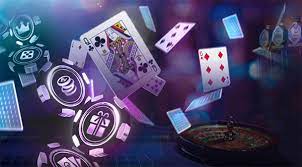Introduction
Slot machines have been a staple of casinos and gaming establishments for over a century. Their iconic spinning reels and bright, flashing lights capture the imagination of millions of players worldwide. Whether you’re a seasoned gambler or a slot gacor 777, understanding the basics of slot machines can enhance your gaming experience. This article delves into the history, mechanics, and strategies of slot machines, providing a well-rounded view of these captivating devices.
A Brief History of Slot Machines
The slot machine’s origins trace back to the late 19th century. The first slot machine, known as the “Liberty Bell,” was invented by Charles Fey in 1895. This early machine featured three reels and a single payline, with symbols like horseshoes, diamonds, and bells. The Liberty Bell became immensely popular, laying the foundation for modern slot machines.
As technology evolved, so did slot machines. The introduction of electromechanical slots in the 1960s brought more features and complex gameplay. With the rise of digital technology in the 1990s, video slots emerged, offering enhanced graphics, sound effects, and diverse themes. Today, online slots have further revolutionized the industry, allowing players to enjoy their favorite games from the comfort of their homes.
How Slot Machines Work
Modern slot machines operate using a combination of mechanical and digital technology. Here’s a basic rundown of how they work:
- Reels and Symbols: Traditional slot machines have three or more reels, each adorned with various symbols. The goal is to line up matching symbols along paylines to win.
- Random Number Generators (RNGs): Modern slot machines use RNGs to ensure fairness and unpredictability. RNGs are algorithms that generate random sequences of numbers, determining the outcome of each spin. This technology ensures that every spin is independent of the previous one.
- Paylines and Payouts: Paylines are the lines on which winning combinations of symbols must appear. Slot machines can have multiple paylines, increasing the chances of winning. Payouts are determined by the type of symbols and the number of matching symbols that land on a payline.
- Bonus Features: Many slot machines include bonus features, such as free spins, multipliers, and mini-games. These features add excitement and can lead to significant payouts.
Strategies for Playing Slots
While slot machines are primarily games of chance, there are strategies players can use to maximize their enjoyment and potentially increase their winnings:
- Understand the Paytable: Each slot machine has a paytable that outlines the winning combinations and payouts. Familiarize yourself with the paytable to understand how the game works.
- Manage Your Bankroll: Set a budget for your slot play and stick to it. Avoid chasing losses and know when to stop.
- Choose the Right Machine: Different slot machines have varying payout percentages (Return to Player or RTP). Opt for machines with higher RTPs for better chances of winning.
- Take Advantage of Bonuses: Many casinos offer bonuses and promotions for slot players. Take advantage of these offers to extend your playtime and increase your chances of winning.
The Future of Slot Machines
The slot machine industry continues to evolve with advancements in technology. Virtual reality (VR) and augmented reality (AR) are poised to offer immersive slot experiences, while blockchain technology promises increased transparency and fairness. As technology progresses, slot machines will undoubtedly continue to captivate and entertain players around the world.
Conclusion
Slot machines have a rich history and remain a popular form of entertainment in casinos and online platforms. Whether you’re spinning the reels for fun or aiming for a big win, understanding the mechanics and strategies behind slot machines can enhance your gaming experience. As technology advances, the world of slots will continue to evolve, offering new and exciting ways to play.



